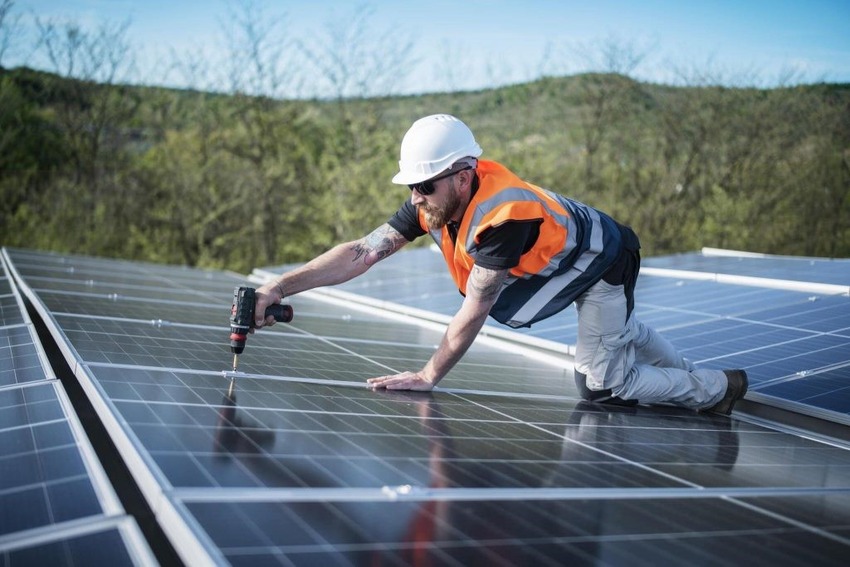In the world of commercial real estate, the roof over your building is more than just a cover; it’s an investment in the protection and longevity of your property. From routine maintenance to complex installations, commercial roofing services play a crucial role in ensuring that businesses have durable, reliable roofs that can withstand the test of time.
In this article, we delve into the comprehensive spectrum of commercial roofing services, from routine upkeep to major installations, to understand their significance in safeguarding commercial properties.
Understanding the Commercial Roofing Services
Commercial roofing services encompass a wide range of activities aimed at maintaining, repairing, and installing roofs on commercial properties. These services are essential for preserving the structural integrity of buildings, preventing damage, and ensuring the safety and comfort of occupants. Let’s explore the key components of commercial roofing services:
1. Routine Maintenance
Regular maintenance is the cornerstone of a healthy commercial roof. Commercial roofing contractors conduct routine inspections to assess the condition of the roof, identify potential issues, and perform necessary repairs or maintenance tasks.
This may include cleaning gutters, removing debris, inspecting for leaks or damage, and checking the condition of roofing materials.
Routine maintenance helps extend the lifespan of the roof, prevent minor roofing issues from escalating into major problems, and ensure that the roof remains watertight and structurally sound. By staying proactive, building owners can avoid costly repairs and premature roof replacements.
2. Repair Services
Despite regular maintenance, commercial roofs may still experience wear and tear over time. From minor leaks to storm damage, commercial roofing contractors provide repair services to address a wide range of issues quickly and effectively.
Repair services may include patching leaks, replacing damaged shingles or membranes, repairing flashing, and reinforcing weak spots. Contractors prioritize timely repairs to minimize the risk of water intrusion, mold growth, and structural damage to the building.
3. Roof Replacement
Eventually, all roofs reach the end of their lifespan and require replacement. Commercial roofing contractors offer roof replacement services to remove the old roof and install a new one that meets the building’s needs and complies with local building codes and regulations.
Roof replacement is a significant undertaking that requires careful planning, skilled labor, and quality materials. Contractors assess the condition of the existing roof, recommend appropriate replacement options, and execute the installation with precision and expertise.
4. New Construction
In addition to maintenance and repairs, commercial roofing contractors also play a vital role in new construction projects. Whether it’s a retail center, office building, or industrial facility, contractors work closely with architects, developers, and builders to design and install roofs that meet the unique requirements of the project.
The new construction process involves selecting appropriate materials, designing efficient drainage systems, and ensuring proper insulation and ventilation. Contractors adhere to strict timelines and budget constraints to deliver roofs that are both functional and aesthetically pleasing.
The Importance of Commercial Roofing Services
Commercial roofing services are essential for maintaining the structural integrity, safety, and longevity of commercial properties. Here’s why they are crucial for businesses:
1. Protecting Assets
A well-maintained roof protects valuable assets, equipment, and inventory housed within commercial buildings. By preventing water intrusion, mold growth, and structural damage, commercial roofing services safeguard businesses’ investments and minimize the risk of costly repairs or replacements.
2. Ensuring Safety
A damaged or compromised roof poses a safety hazard to occupants and visitors of commercial properties. Commercial roofing services help identify and address potential safety issues such as loose materials, weak spots, or structural deficiencies, to ensure a safe and secure environment for everyone.
3. Enhancing Energy Efficiency
Energy-efficient roofing solutions can help businesses reduce heating and cooling costs and lower their carbon footprint. Commercial roofing services offer options such as cool roofs, reflective coatings, and high-performance insulation to improve energy efficiency and enhance indoor comfort for occupants.
4. Compliance with Regulations
Commercial properties are subject to building codes, regulations, and industry standards that govern the design, construction, and maintenance of roofs. Commercial roofing services ensure that roofs meet these requirements, helping businesses avoid fines, penalties, and legal liabilities associated with non-compliance.
5. Preserving Property Value and Aesthetics
One of the often overlooked yet significant aspects of hiring the best residential roofing contractor is their role in preserving the property value and aesthetics of your home. A well-maintained and visually appealing roof enhances the curb appeal of your home, making it more attractive to potential buyers if you ever decide to sell.
Conclusion
From routine maintenance to complex installations, commercial roofing services play a vital role in preserving the integrity and functionality of commercial properties. By addressing maintenance needs, repairing damage, and installing new roofs as needed, commercial roofing contractors help businesses protect their investments, ensure the safety of occupants, and enhance the energy efficiency of their buildings.
Whether it’s a small repair or a complete roof replacement, investing in commercial roofing services is essential for maintaining the longevity and performance of commercial roofs. By partnering with experienced and reputable contractors, businesses can enjoy peace of mind knowing that their roofs are in capable hands, allowing them to focus on what matters most running and growing their businesses.

